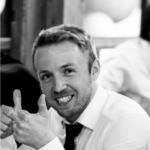Link to Pubmed [PMID] – 26235130
Mol. Microbiol. 2015 Nov;98(4):636-50
Almost all bacterial genomes contain DNA of viral origin, including functional prophages or degenerated phage elements. A frequent but often unnoted phenomenon is the spontaneous induction of prophage elements (SPI) even in the absence of an external stimulus. In this study, we have analyzed SPI of the large, degenerated prophage CGP3 (187 kbp), which is integrated into the genome of the Gram-positive Corynebacterium glutamicum ATCC 13032. Time-lapse fluorescence microscopy of fluorescent reporter strains grown in microfluidic chips revealed the sporadic induction of the SOS response as a prominent trigger of CGP3 SPI but also displayed a considerable fraction (∼30%) of RecA-independent SPI. Whereas approx. 20% of SOS-induced cells recovered from this stress and resumed growth, the spontaneous induction of CGP3 always led to a stop of growth and likely cell death. A carbon source starvation experiment clearly emphasized that SPI only occurs in actively proliferating cells, whereas sporadic SOS induction was still observed in resting cells. These data highlight the impact of sporadic DNA damage on the activity of prophage elements and provide a time-resolved, quantitative description of SPI as general phenomenon of bacterial populations.

